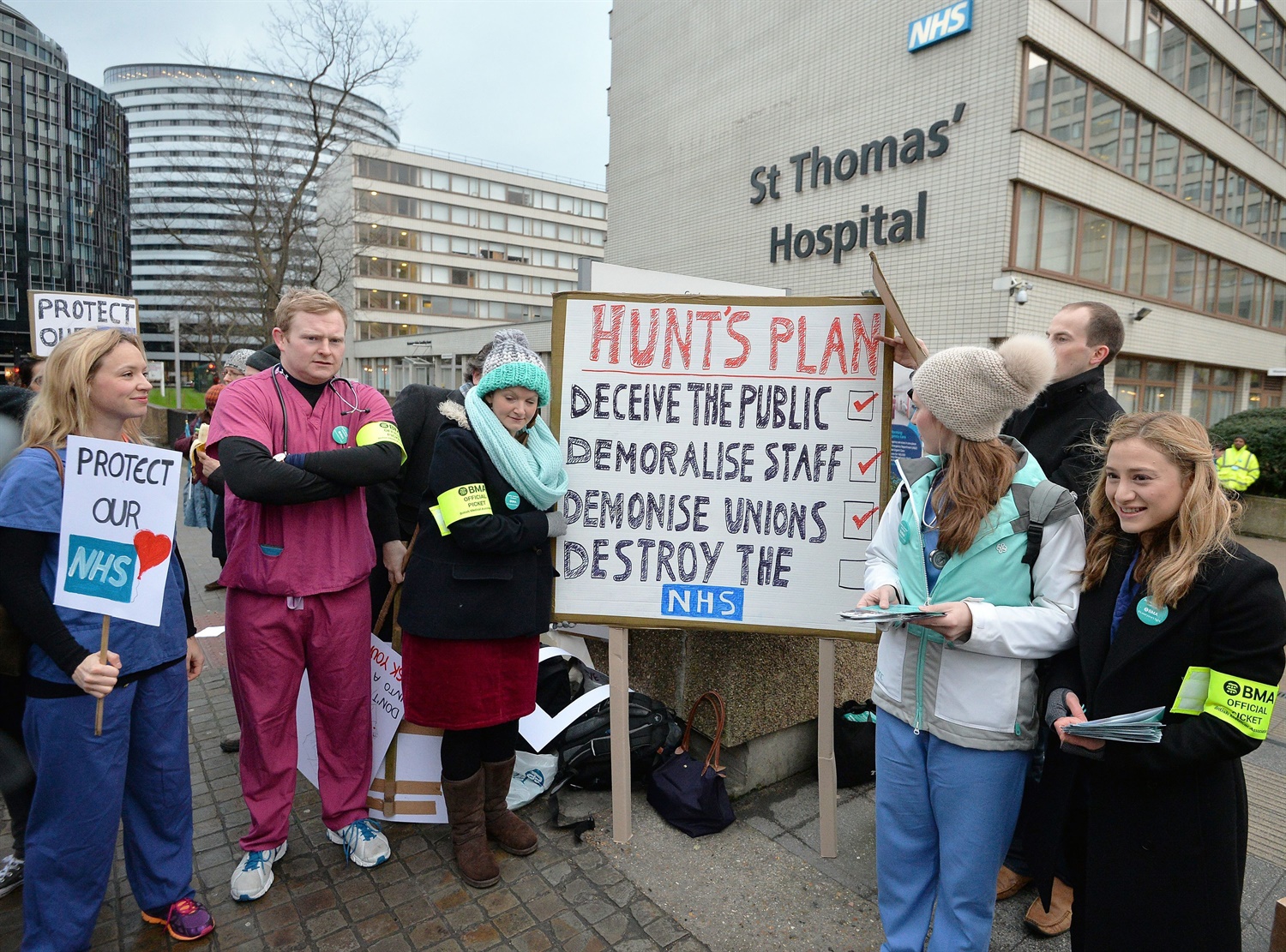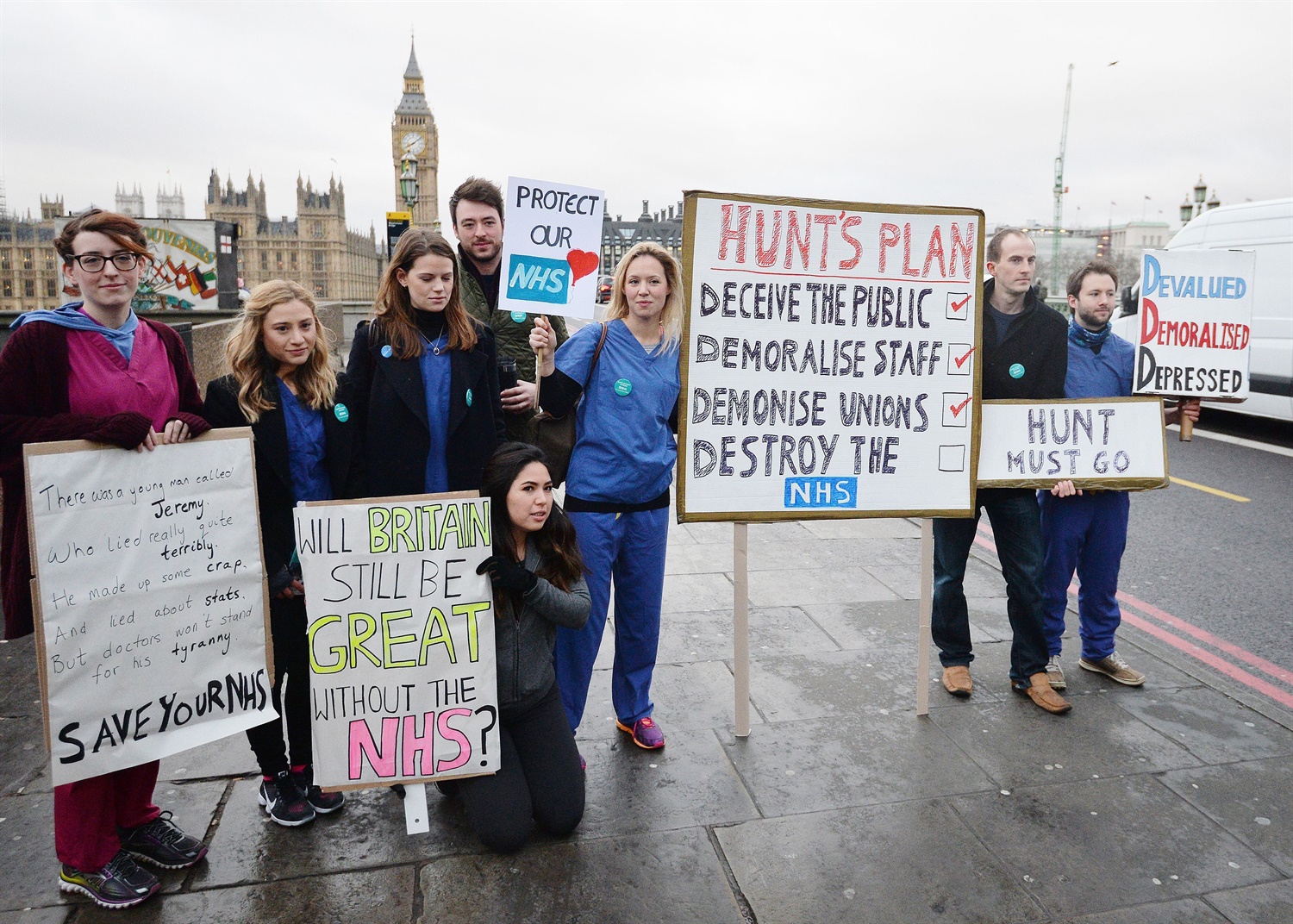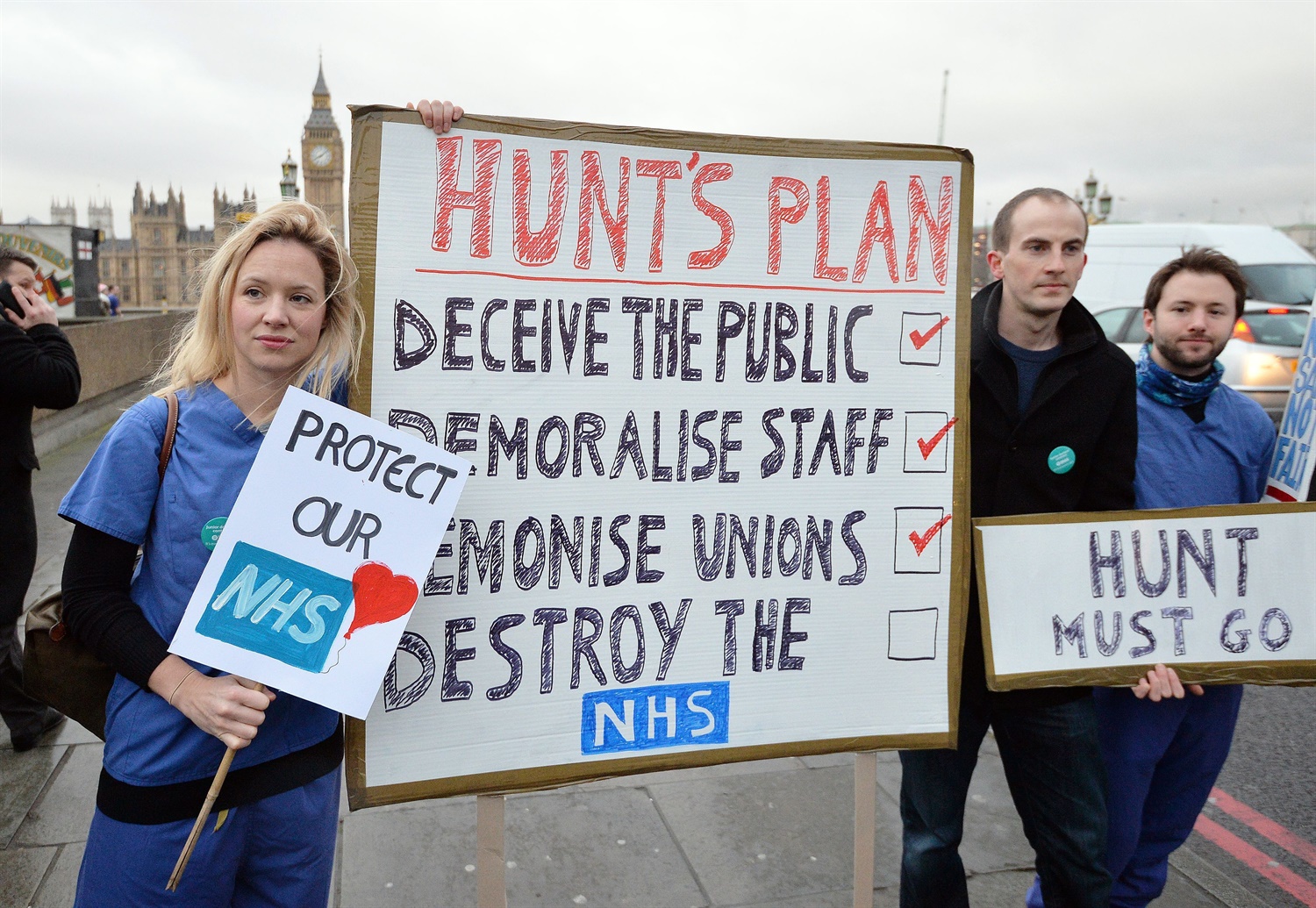10.02.16
Junior doctors start second 24-hr strike over contract changes
Thousands of junior doctors in England have started the second 24-hour strike over proposed contract changes to working hours.
During the industrial action, which started at 8:00am this morning, junior doctors will provide emergency care only. As a result of the walkout nearly 3,000 operations have been cancelled.
NHE understands that yesterday last-ditch talks were held between the BMA and NHS Employers in an attempt to avert the strike. However, these were unsuccessful with a key sticking point appearing to be payments for working on Saturdays.
The second wave of industrial action started following mass demonstrations by thousands of junior doctors over weekend. BMA junior doctors’ committee chair Johann Malawana said: “Last weekend, thousands of us took to the streets of London and Bristol to show that our fight for a properly negotiated contract continues.
“[Today], we raise our voices again, on hundreds of picket lines across England.”

Despite recent weeks of negotiation with the BMA, which led to strike action in late January being called off, the BMA claims ministers are continuing to “devalue junior doctors”.
Danny Mortimer, CEO of NHS Employers, said it was “extremely disappointing” the strike action has gone ahead.
“We have listened and worked hard to address the BMA’s concerns. We now need to see from the BMA the will to also compromise, with a focus on resolution – rather than strike action,” he said.
“Patients should not suffer over a dispute about pay. We will continue to want to talk with the BMA to agree a contract that is fair and safe for doctors and patients.”

Formal talks with Acas broke down in late January, and last week Sir David Dalton, who has recently appointed by the government to lead the talks for NHS Employers, called on trainee doctors to avoid the action. Despite being unsuccessful in his plea, Sir David did manage to water down the BMA’s industrial action which was originally scheduled to be a full walkout, and most of the dispute’s sticking points have also been resolved.
There have also been rumours a deal had been agreed by the BMA and NHS Employers, but was rejected by the health secretary Jeremy Hunt. However, the Department of Health denied this claim.
Speaking in Parliament yesterday, Hunt said: “The only reason we do not have a solution on the junior doctors is the BMA saying in December that it would negotiate on the one outstanding issue – pay on Saturdays – but last month refusing to negotiate.
“If the BMA is prepared to negotiate and be flexible on that, so are we. It is noticeable that despite 3,000 cancelled operations, no one in the Labour party is condemning the strikes.”

Sir David Dalton has advised the government that a deal is needed by no later than mid-February, and health minister Ben Gummer MP told the Commons yesterday that “it has to be done at some point, and that point is fast approaching”.
The latest walkout comes after doctors took part in strike action on 12 January, which led to 4,000 operations and treatments being cancelled. But NHS England’s Dr Anne Rainsberry told the BBC the health service was doing “everything possible to minimise the impact” of today’s strike action.
(Images: c. John Stillwell